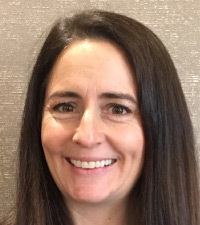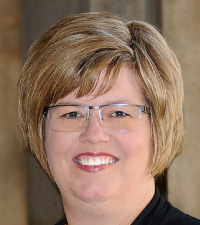Unplanned Life Changes in Omaha, NE – 2019
In 1789, Benjamin Franklin wrote a letter that said, in part: “Our new Constitution is now established, and has an appearance that promises permanency; but in this world, nothing can be said to be certain, except death and taxes.” Franklin’s wry words have become a popular idiom, especially, around tax season, because he recognized that there will inevitably be problems in life. We all have to consider what kinds of difficulties and unplanned circumstances could arise in the future. Some of these unplanned circumstances are caused by accidents or illness, others by old age, but preparation can help families navigate difficult circumstances.
While some issues affect the elderly more, anyone young or old who experiences an accident should consider short-term rehabilitation care, which focuses on helping the body recover strength following surgery or accident. As the public relations coordinator for Brookestone Meadows, Michele Magner explained that, whether someone is young or old, understanding the type of care they need is their most important first step. Since there is such specific care for certain needs, not every home or living option is the right fit for a certain individual.”
“Since families who have unexpectedly experienced an accident or sudden illness might not be very familiar with the healthcare field, I think the number one distinction is between short-term and long-term care,” Michele told us. “Another term for short-term care you should be familiar with is ‘sub-acute care.’ The goal is 24-hour care for a temporary period which will help a patient recover. Regaining physical strength and mobility isn’t just important after someone has had an accident. It’s also important following surgery, so it affects people of all ages. On the other hand, there is long-term care, which often involves skilled-nursing care if it’s in response to an ongoing medical issue. Both types of care should emphasize helping someone become more independent, recover strength and mobility, and enjoy a comfortable, social environment.”
In-home care can be the most practical for families who prefer to be independent. It has become popular for those who wish to remain in their own home but still require some additional help. This can also apply to younger people who have experienced an injury and may require short-term help rather than a long-term home. As the chief operating officer with Home Nursing With Heart, Jim Laughlin explained that, because every individual’s needs are different, it is important for you to communicate with a service that can flexibly meet those needs. “For example, if someone in your family is experiencing medical issues, beyond needing help with common household tasks, this is where skilled nursing would become important,” said Jim. “Our nurses specialize in treating a variety of conditions affecting heart health, breathing, the mind, and the bones. This kind of care isn’t just for individuals with an ongoing condition or disease. It can be important for post-surgical recovery as well for short-term patients. For short-term care, a nurse would help with keeping surgical wounds clean and ensure they are healing properly, and assist you in returning to regular life.” However, if someone does not require skilled nursing, they might still require therapy.
Jim discussed four basic types of recovery therapies, each focusing on a different problem people can experience:
- Physical therapy is the most general, and focuses on mobility and strength recovery using traditional modalities and exercises. It can also help you regain balance and make important movements such as traveling from your bed to the restroom more safely.
- Occupational therapy focuses on improving ability to perform key, daily tasks. For example, patients and care staff may form a plan to improve coordination to perform tasks such as dressing, eating, writing, or reading.
- Balance and fall prevention, like physical therapy, focuses on movement and strength. In addition, this strategy involves making a specific plan to remove common obstacles which can lead to falls and accidents. Whether it is someone’s vision or medication, or whether furniture in a home is laid out in a way that obstructs movement, there are many steps to ensure that navigating around the home does not become hazardous.
- Speech therapy is not only common to help patients of strokes and hearing loss to regain their ability to communicate, it also can help with memory problems and trouble swallowing.
In contrast, to the recovery methods for surgeries or accidents, memory and Alzheimer’s/dementia caregivers focus on serving residents who struggle with memory loss. As Jolee Urbanovsky, transition consultant for Bridge to Better Living (BBL), explained to us, “Dementia is a true passion of mine and it affects so many individuals and families in different ways. There have been many stories and journeys I have been blessed to walk alongside. Although dementia is a cruel and evil disease, BBL is here to relieve some of the stress by offering a shoulder to cry on—someone to sit and listen to the concerns, confusion, and frustration families go through on a day to day basis. When a family member or spouse knows they have this kind of support, they will hopefully be able to take a deep breath and meet their loved one where they are in the disease process. Then, when the story is done, there will only be love and good memories for the family to cherish and remember.”
We all know that seniors are affected more profoundly by an accident than a younger person would be. This means the need for care may arise unexpectedly in later life. “Unfortunately, unexpected and difficult situations or a crisis may happen at any moment’s notice,” noted Jolee. When considering options, Jolee advises families to look for teams who understand the healthcare industry and provide a variety of strengths. “We have an amazing team at Bridge to Better Living and have a combined total of over 140 years of working passionately with seniors and the healthcare industry. Because of our experience, we have a vast amount of resources or suggestions on whatever conversations are needed. The Transition Consultant team at Bridge to Better Living utilizes each other’s strengths and skill sets. If one team member doesn’t have the answer, I guarantee another team member will know or have the resources to answer the questions and be of assistance. The other huge advantage of working with Bridge to Better Living is having us at the family’s or senior’s side every step of the journey. We are not a one phone call kind of business. Bridge to Better Living values people. Their needs and concerns matter to us. With our knowledge, resources, and compassion for seniors and their families, Bridge to Better Living is able to help find the light at the end of the tunnel.”
If someone waits for an accident or an illness to affect their family, this can limit their options to address problems quickly. During these times, access to information is often the critical piece of the puzzle families are missing to help their loved one. As the Omaha advisor for Oasis Senior Advisors, Kyle Johnson, has seen how unplanned life events often force unprepared families into a stressful decision-making process. “I’ve seen the stress of placing a loved one in a senior living community. You have so many questions. We help families navigate this maze and the best senior living environment which fits their individual needs.” Kyle believes that, by offering complimentary services, they can help families be prepared. “Sometimes an accident will force a family to have an immediate need for a new home. In other situations, a minor accident or near miss could prompt them to just start considering their options for the future. Seniors will often have questions about the homes they are considering. You should consider the social services they offer, whether nursing care or special medical services will be required, those kinds of questions are common. At Oasis, we help families walk through these questions in a simple, step by step fashion, helping you narrow down the choices to those which best fit your needs. I also strongly recommend touring the places you are most interested in, which Oasis can help you arrange.”
For families navigating health problems that their senior loved ones face, knowledge is one of the most precious things to have. There are many resources that exist to help families navigate these problems. Kyle explained that, for families that want to read about some of their options at home, the ElderCare Resource Handbook, provided by Care Consultants for the Aging, is an excellent resource. The handbook acts as a starting point for families that are researching their care options. Plus, there is an edition that focuses specifically on Omaha. The online version of the handbook is available for free and physical editions can be ordered for just a few dollars.
Whether an accident, an illness, or a sudden death, unforeseen life events can affect the young and the old. Many resources and services exist to allow families to gather information on the options they have available to them to prepare for the future, even for the things we don’t expect.





